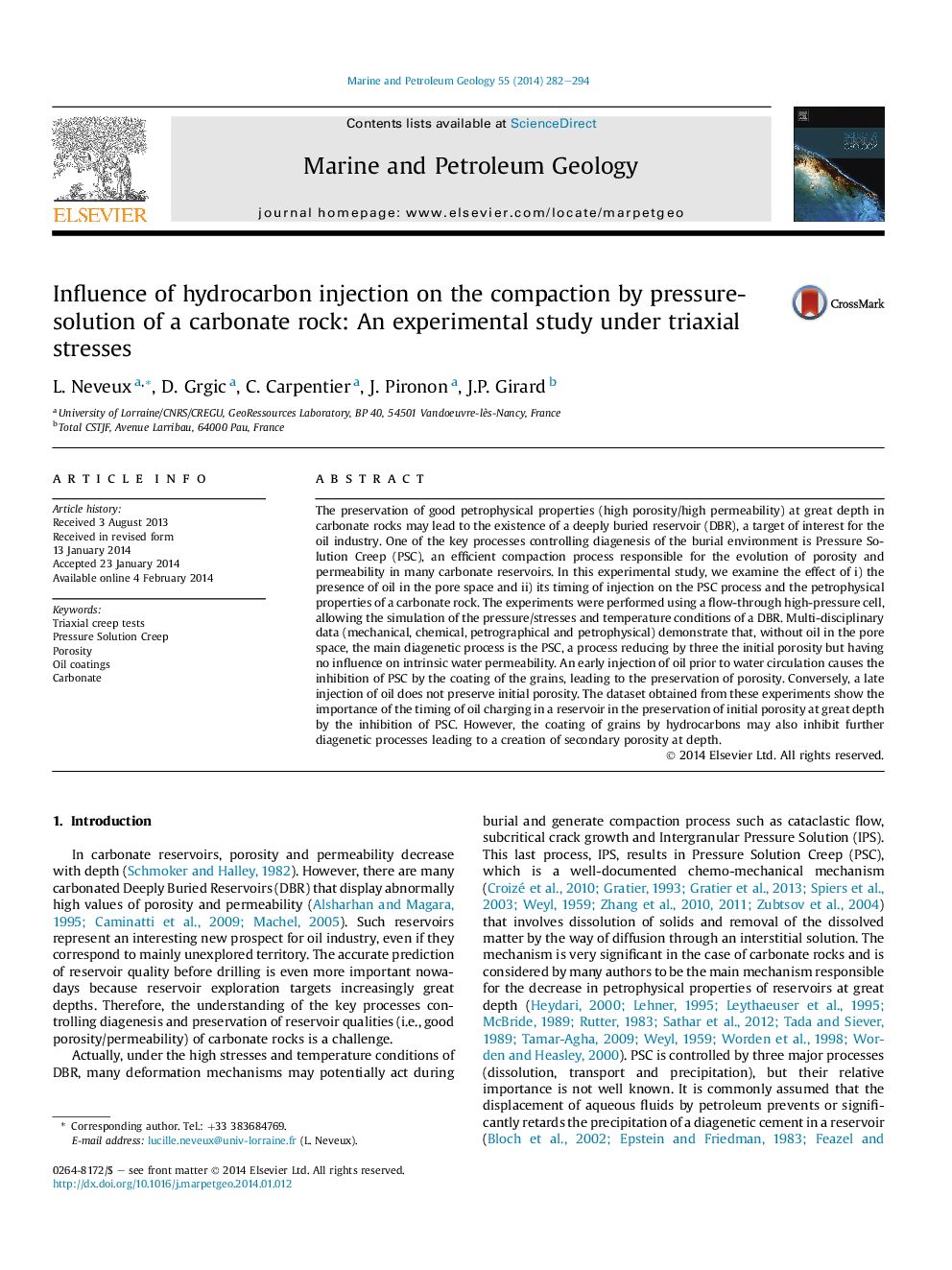| کد مقاله | کد نشریه | سال انتشار | مقاله انگلیسی | نسخه تمام متن |
|---|---|---|---|---|
| 6435455 | 1637169 | 2014 | 13 صفحه PDF | دانلود رایگان |
- Pressure Solution Creep is the main deep burial compaction mechanism in carbonates.
- Presence of oil in the pore space inhibits Pressure Solution by grain coating.
- Early oil injection preserves high initial porosity at great burial depth.
The preservation of good petrophysical properties (high porosity/high permeability) at great depth in carbonate rocks may lead to the existence of a deeply buried reservoir (DBR), a target of interest for the oil industry. One of the key processes controlling diagenesis of the burial environment is Pressure Solution Creep (PSC), an efficient compaction process responsible for the evolution of porosity and permeability in many carbonate reservoirs. In this experimental study, we examine the effect of i) the presence of oil in the pore space and ii) its timing of injection on the PSC process and the petrophysical properties of a carbonate rock. The experiments were performed using a flow-through high-pressure cell, allowing the simulation of the pressure/stresses and temperature conditions of a DBR. Multi-disciplinary data (mechanical, chemical, petrographical and petrophysical) demonstrate that, without oil in the pore space, the main diagenetic process is the PSC, a process reducing by three the initial porosity but having no influence on intrinsic water permeability. An early injection of oil prior to water circulation causes the inhibition of PSC by the coating of the grains, leading to the preservation of porosity. Conversely, a late injection of oil does not preserve initial porosity. The dataset obtained from these experiments show the importance of the timing of oil charging in a reservoir in the preservation of initial porosity at great depth by the inhibition of PSC. However, the coating of grains by hydrocarbons may also inhibit further diagenetic processes leading to a creation of secondary porosity at depth.
Journal: Marine and Petroleum Geology - Volume 55, August 2014, Pages 282-294
